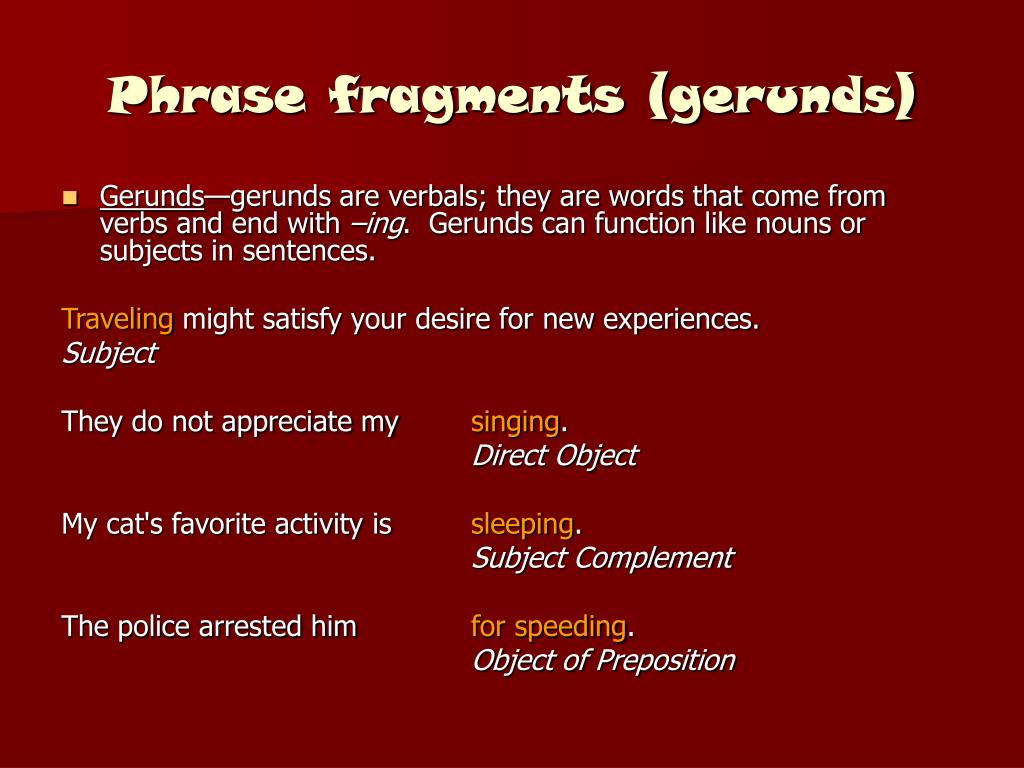

The point (and the only point, but a valid and necessary point for the context) is that if someone asks, "How many were there?", a reply of "Two" can be defined as both a clause and a sentence, in one of the definitions of each word (because its real-world meaning is not different from the real-world meaning of "There were two"), even though it does not meet the typical "Writing Composition 101" or "Foreign Language 101" requirements for the definition of a clause or a sentence (which require explicitness of words/ideas, not implicitness). The example is complete and valid for the purpose it's meant to serve. That is, trying to make it do more than it's meant to do in this context. I think you're trying to make a universal-scope mathematics and philosophy problem out of a limited-scope concrete example of implicitness in everyday language. A Subject with No Object: Strategies for Nominalistic Reconstrual of Mathematics. ^ Burgess, John, and Rosen, Gideon, 1997.(Well, that last one does have verbs, but I still think the true structure is one of parallel phrases rather than one of coordinated or subordinated clauses.) Ruakh 19:28, 16 November 2006 (UTC) Reply Similarly with many such adages: "in for a penny, in for a pound" "like father, like son" "no pain, no gain" "out of sight, out of mind" "once bitten, twice shy" "waste not, want not" and so on. It's true that some more-normal structure can be imposed by taking fuller clauses to be elided, but the primary structure is one of parallel phrases, the implication being that two things go together. You could argue that it's a regular complex sentence, with "the more " serving as a adverb clause modifying "the merrier ", but I think this is missing the point, which is that the verb is implied the sentence itself ("the more, the merrier") has no verbs. It's certainly not a regular compound sentence.

The preceding unsigned comment was added by 198.185.18.207 ( talk
#SENTENCE FRAGMENT DEFINITION EXAMPLE FULL#
The full expanded sentence would be regular compound sentence using the verb 'to be' twice, right? : The more, the merrier is just a shorthand. Keep in mind that others have donated a lot of their own time here (and they are not receiving a grade and course credit for their effort). My guess is that it took you about an hour to produce your critique. Stephedwood ( talk) 23:32, 18 September 2014 (UTC) Reply Ling 300, UBC, right? You've now critiqued others work in a sweeping fashion. Lastly, although the article contains many references from books and journals, it is not complete nor is it uniform, lacking some retrieval dates, authors and dates of article/book publications, as well as seems to lack one style for the bibliography to follow. However, we can see that this section lacks balance – it only has one subsection, covering clauses- and this is an insufficient amount about the components of sentences, as we know that 1) there are multiple types of clauses, which are not covered OR lack examples in the section, and 2) clauses are not the only things that make up sentences. Furthermore, the article gives examples from a Charles Dickens book, naming different types of sentences which would be a good section or subsection within the article, but then fails to mention them again.“Sentences” has six main sections, the first of these being “Components”.
#SENTENCE FRAGMENT DEFINITION EXAMPLE PDF#
This article has been rated as High-importance on the project's importance scale.īy examining the C-class Wikipedia article “Sentences”, one is able to see where some improvements can be made on the article with the PDF “Evaluating Wikipedia”.įirst and foremost, we can see in the lead section, that although there is a sufficient definition of “sentence”, the lead doesn’t summarize the key points in the article. Linguistics Wikipedia:WikiProject Linguistics Template:WikiProject Linguistics Linguistics articles If you would like to participate, please visit the project page, where you can join the discussion and see a list of open tasks. This article is within the scope of WikiProject Linguistics, a collaborative effort to improve the coverage of linguistics on Wikipedia. For the contribution history and old versions of the redirected article, please see its history for its talk page, see here. The original page is now a redirect to this page. Its contents were merged into Sentence (linguistics). The discussion was closed on 20 December 2011 with a consensus to merge. Sentence length (linguistics) was nominated for deletion. This article has been rated as C-class on Wikipedia's content assessment scale. Vital articles Wikipedia:WikiProject Vital articles Template:Vital article vital articles Sentence (linguistics) has been listed as a level-4 vital article in Society.


 0 kommentar(er)
0 kommentar(er)
